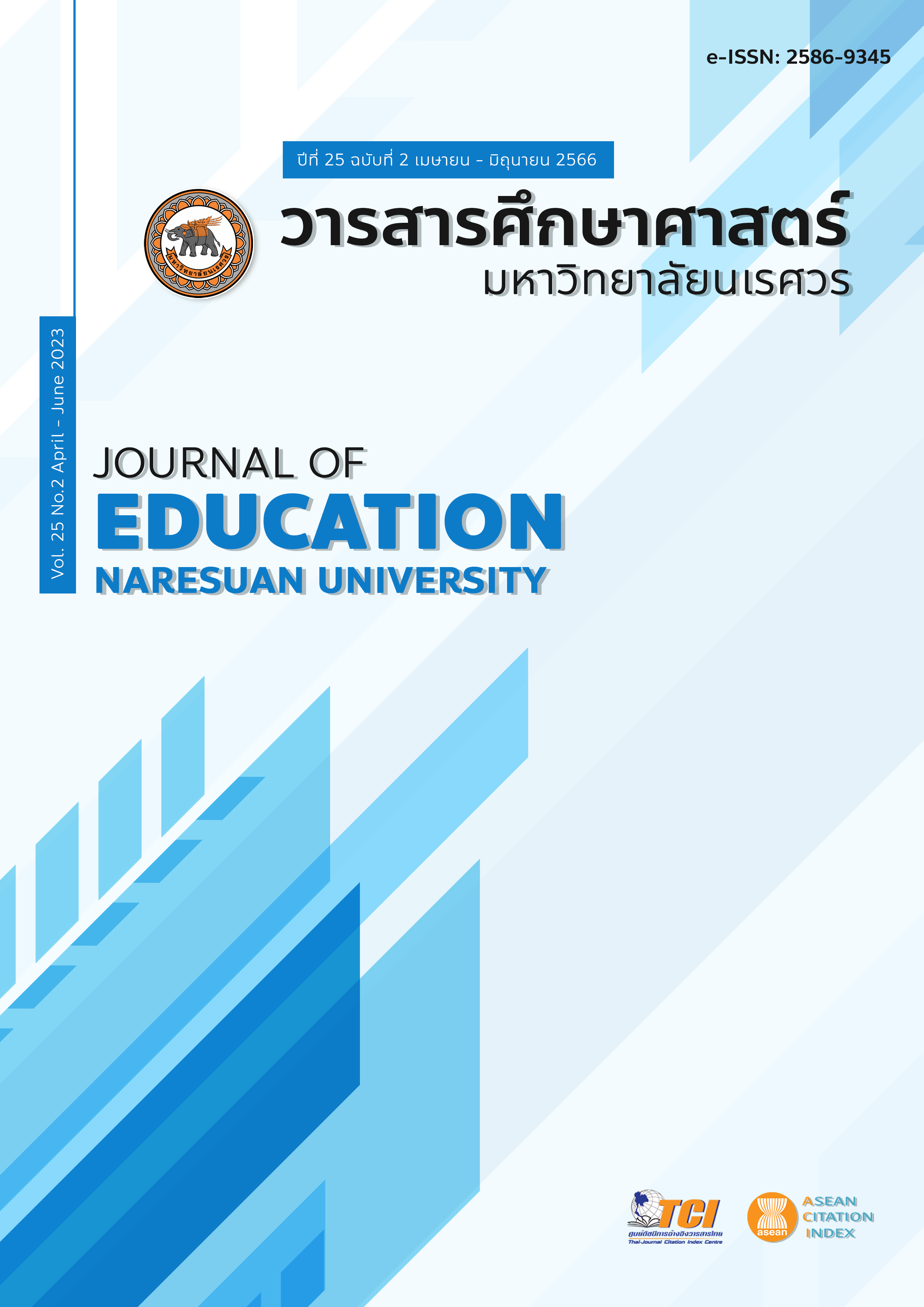GUILDELINES FOR THAI COMMUNITY-BASED LEARNING INTEGRATED WITH FOLKLORE RESOURCES TO PROMOTE LEARNERS’ COMPETENCIES IN 21ST CENTURY แนวทางการจัดการเรียนรู้ภาษาไทยฐานชุมชน ด้วยการบูรณาการแหล่งเรียนรู้ทางคติชนท้องถิ่น เพื่อส่งเสริมสมรรถนะสำคัญของผู้เรียนในศตวรรษที่ 21
Main Article Content
Abstract
This article aims to 1) present the results of conceptual studies related to the learning management approach in the 21st century leading to Thai community - based learning integrated with folklore resources to promote learners’ competencies in 21st century, and 2) present the guidelines and activity examples of Thai community - based learning integrated with folklore resources in Culture and Language course, which the author has designed and experimentally applied from the teaching experiences in the past. The results of the studies in regard of the competencies of learners based on the basic education core curriculum B.E. 2551 was correlated with the 21st Century Learning Skills (3Rs8Cs) according to the guidelines of the world educational development. It was also found that the community-based learning approach in accordance with the learning management approach in the 21st century could be used as a guideline for developing the Thai community-based learning in the Culture and Language course, studying about the relationship between Thai language and Thai culture in the form of folklore, which will lead the learners to the community classroom in order to create a self-learning experience through practices from a community study. This will promote and develop the competencies of learners was correlated with the 3Rs8Cs skills in the 21st century learning management approach in which the international education system has given priority and used it as a guideline for the current development.
Article Details

This work is licensed under a Creative Commons Attribution-NonCommercial-NoDerivatives 4.0 International License.
The owner of the article does not copy or violate any of its copyright. If any copyright infringement occurs or prosecution, in any case, the Editorial Board is not involved in all the rights to the owner of the article to be performed.
References
Atthakorn, K. (1976). Folk lore. Bangkok: Supervisor agency Department of Teacher Training. [in Thai]
Dibyamandala, J. (2020). Education in language society and culture. Bangkok: Charansanitwong Printing. [in Thai]
Halliday, M. A. K. (1978). Language as social semiotic. London: Edward Arnold.
Kolb, D. (1984). Experiential learning: Experience as the source of learning process. City: Prentice Hall.
Kramsch, C. (1998). Language and Culture. Oxford: Oxford University Press.
Office of the Education Council. (2014a). Guidelines for the development of Thai education and preparation for the 21st century (Research report). Bangkok: Office of the Education Council. [in Thai]
Office of the Education Council. (2014b). Trends in the future of education and Thai learning in B.E. 2573 (Research report). Bangkok: Office of the education council. [in Thai]
Office of the Education Council. (2017). National Education Plan B.E. 2560-2579. Bangkok: Office of the Education Council. [in Thai]
Office of the Education Council. (2019a). Education in Thailand B.E.2561/2562. Bangkok: Office of the Education Council. [in Thai]
Office of the Education Council. (2019b). Guidelines for the development of students competency at the basic education level. Bangkok: Office of the Education Council. [in Thai]
Phanich, V. (2013). Building a learning into the 21st century. Bangkok: The Siam Commercial Foundation. [in Thai]
Punyaphruk, S. (2018). Step into a new way of learning management in the 21st century. Bangkok: Danex intercorporation. [in Thai]
Rittikoop, W. (2018). Community-based learning: Effective pedagogy strategies for teachers in the 21st century. Journal Chiang Rai Rajabhat University, 11(3), 179- 191. [in Thai]
Thavornseth, A. (2003). Folk lore. Bangkok: Suan Sunandha Rajabhat University Book Center. [in Thai]
The National Institute of Educational Testing Service. (2012). Handbook of a Competency Appraisal for Basic Education students based on the Basic Education Core Curriculum B.E. 2551. Bangkok: National office of Buddhism printing. [in Thai]


